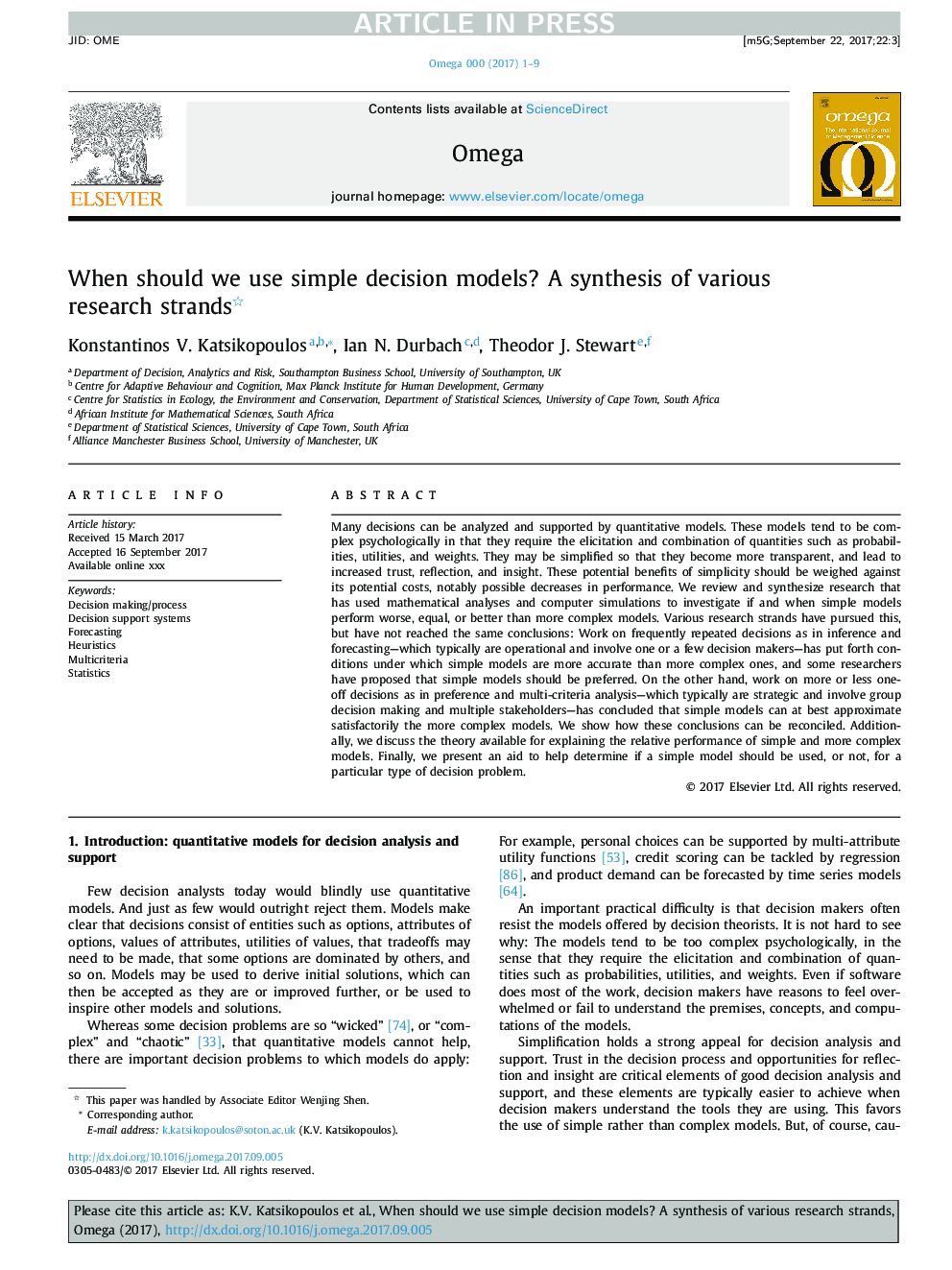| Article ID | Journal | Published Year | Pages | File Type |
|---|---|---|---|---|
| 8954680 | Omega | 2018 | 9 Pages |
Abstract
Many decisions can be analyzed and supported by quantitative models. These models tend to be complex psychologically in that they require the elicitation and combination of quantities such as probabilities, utilities, and weights. They may be simplified so that they become more transparent, and lead to increased trust, reflection, and insight. These potential benefits of simplicity should be weighed against its potential costs, notably possible decreases in performance. We review and synthesize research that has used mathematical analyses and computer simulations to investigate if and when simple models perform worse, equal, or better than more complex models. Various research strands have pursued this, but have not reached the same conclusions: Work on frequently repeated decisions as in inference and forecasting-which typically are operational and involve one or a few decision makers-has put forth conditions under which simple models are more accurate than more complex ones, and some researchers have proposed that simple models should be preferred. On the other hand, work on more or less one-off decisions as in preference and multi-criteria analysis-which typically are strategic and involve group decision making and multiple stakeholders-has concluded that simple models can at best approximate satisfactorily the more complex models. We show how these conclusions can be reconciled. Additionally, we discuss the theory available for explaining the relative performance of simple and more complex models. Finally, we present an aid to help determine if a simple model should be used, or not, for a particular type of decision problem.
Keywords
Related Topics
Social Sciences and Humanities
Business, Management and Accounting
Strategy and Management
Authors
Konstantinos V. Katsikopoulos, Ian N. Durbach, Theodor J. Stewart,
